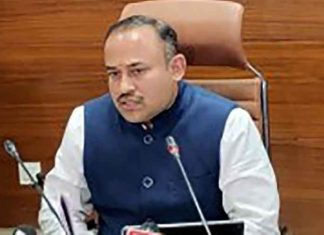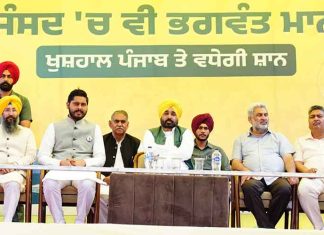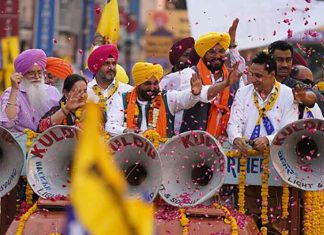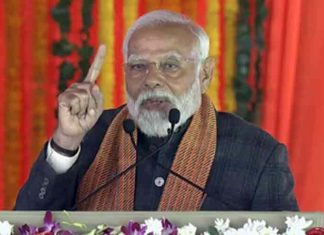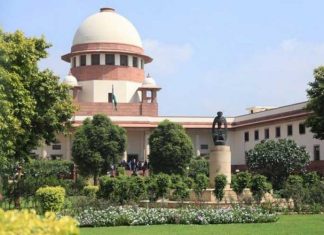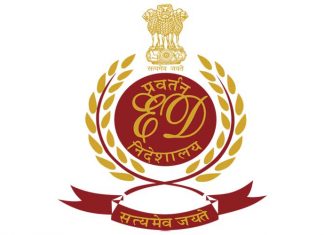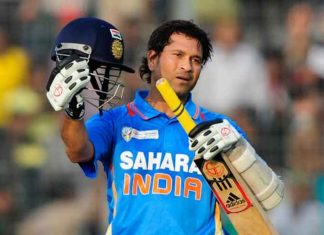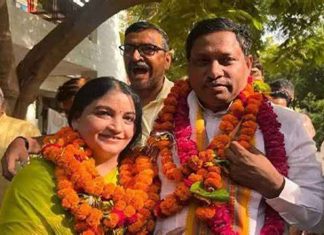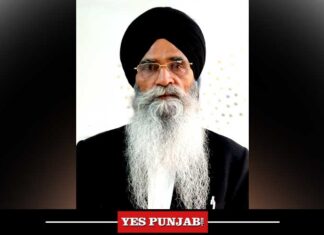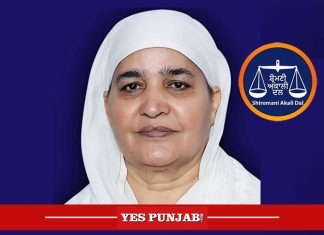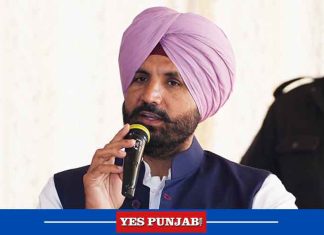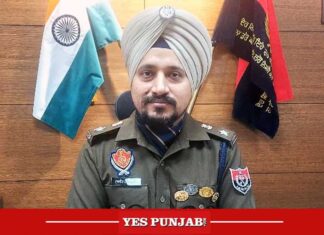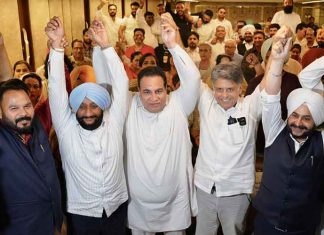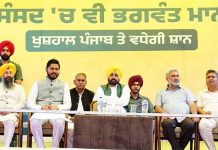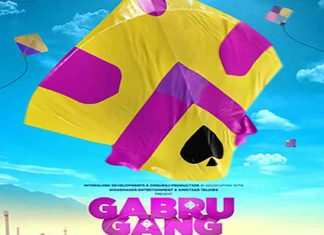There is a silly notion being floated for a few years now that Sikhs are demanding justice for the 1984 genocide. Indian TV and print media happily fuel such a narrative, repeatedly peddling the clichéd line that Sikhs have been waiting for justice for so long.
What can be sillier? If so much tragedy was not involved, you would have even laughed at the ridiculousness of it all.
No one demands justice for thirty years. No one can get justice after more than a quarter of a century. No one can do justice after three decades.
The 1984 massacres had a sequel, a 30 year long sequel. And it continues to top the charts. Mention Gujarat riots and its re-runs start. Threaten to hang a Yakub, and someone will come up with a reference to Indira’s killers and then quickly introduce 1984 into the debate. Off and on, you’ll hear the word – justice.
It’s a story we actually have never told ourselves – because if we did, neither the story would leave us for the rest of our life, nor shall we ever dare to suggest again that it is even possible to do justice after three decades.
I learnt this five years ago. In this age of living lives defined by the media, we become accustomed to giving more importance to 25th anniversary than to 23rd, as if multiples of five or ten underline the gravity better. There was a great deal of hype about justice denied during the winter of 2009. It was the 25th anniversary of 1984 massacres. A book had come out, and some bright book peddling expert suggested that it be released by a “riot victim.”
That’s when I met Sanmeet Kaur. No, she would not have qualified as a “riot victim”. Her mother was. Sanmeet was a fragile bundle, very delicate. She wasn’t even two; her second b’day was still a few weeks away, in the January of 2010. She was chubby, and seemed particularly so as she would try to utter Waheguru and bring her hands together if anyone said Sat Sri Akal. Her smile defined the idea of beatific.
Sanmeet had a deep connection with the idea of search for justice.
She wasn’t there. But the fact that I met her had a lot to do with what happened there. Questions from 1984 will be existential questions all her life for Sanmeet, and no Proust could philosophise them enough to help her make sense of it all.
At the book release function, so many had pinched Sanmeet’s cheeks, and every time she would smile as her mother, a young Kulbir Kaur, fawned over her. In 1984, Kulbir was even younger than Sanmeet was in 2009. She was just two-months-old — “I was also very chubby” — and was cradled in the arms of her mother Mohinder Kaur, who was all of 25 years of age at that time.
Mohinder, 25 year old in 1984; Kulbir, 25 year old in 2009, and Sanmeet, just under two years when I met her. All 1984 women.
As I watched Kulbir cradling her cherubic daughter, I was trying to visualize a two-month-old Kulbir in Mohinder Kaur’s arms 25 years ago on the Delhi railway station. It was November 1. Delhi was not under any deathly silence; instead, there was dance of death all around. The goons armed with kerosene canisters were perhaps angry that long-haired people being burnt alive were making hell of a noise, resisting a little bit too much.
But Kulbir was perhaps less bothered. She was asleep. Was there a smile playing on her lips? Mohinder Kaur does not remember; she wasn’t paying attention to that beautiful bundle in her arms. Something else was demanding her attention.
Her husband, Gurmej Singh, father of the two-month-old Kulbir Kaur, was being burnt alive a few yards away on the railway platform. They had spotted him, had pulled him out and given him no choice. They had unlimited supply of used tires and kerosene, and loved a spectacle.
Mohinder Kaur watched, every nerve in her body straining and pulling at her heart strings to rush out and fend off the goons who were assaulting her husband and throwing burning tires around his neck. She wanted to fend for him, to throw herself over him, to take the blows, to extinguish the flames, to save her husband, or perhaps die with him.
But a bundle wrapped in a towel was stopping her. She needed to first get rid of the cherubic baby; left to herself she would have flung herself on her husband. She knew the odds. One step out of the train, one cry for her husband, one shout for help, and her religion would have been writ large on her face. The goons were in no hurry, they were searching for more Sikhs to be burnt, and there seemed little compunction in burning two-month-olds.
Mohinder Kaur watched hell’s fury from the train as the absence of the Indian nation state wrote the damning fate of the two-month-old Kulbir.
I saw Kulbir Kaur a quarter century later. She was 25. The chubby smile had long gone, the weary one had set in. She had seen too many summers to know that trees that fall in winter shake the earth. An activist lawyer, whose book was being released, presented a wrapped copy of the book to Kulbir Kaur. Carefully cradling Sanmeet in one arm, she unwrapped the book.
It was getting too surreal for the woman who was all of two-months-old when she had seen so much blood. Mohinder Kaur stepped ahead and offered to carry Sanmeet in her arms. In 25 years, one two-month-old had grown up enough to understand what denial of justice means.
Another two-year-old watched now.
And no one was putting much money on what kind of book Sanmeet could possibly be releasing after 25 years.
“You mean she watched her husband being burnt alive and she did not step out from the train?” an innocent young journalist working for an Indian English daily that exhorts its readers to graduate to the times asked me.
“Do you see her releasing the book?” I was forced to ask.
“Yes.”
“Well, if she had, you would not have seen her.”
And I would never have seen a smile as beatific as Sanmeet managed when I uttered Sat Sri Akal. Her hands came together, of their own volition.
Today, after 30 plus years, the victims of 1984 are not demanding justice. They are not even there. No one remains the same after 30 plus years. The young who needed justice are middle aged now. The middle aged who watched people being burnt alive because they had long hair, are in their 80s or 90s. The wise old men and women passed away long ago. The men who sported just sprouting mustaches have salt and pepper beards now.
A Nigerian proverb that underlines a pragmatic approach to justice delivery mechanism says justice should ideally come before the sole of your shoe wears off.
Kulbir has grown out of so many shoes by now. And Sanmeet will soon be asking for new ones.
It is for India to search for justice for itself.
Destiny has decided that India will forever live with the shame of genocide against Sikhs.
It is for New Delhi to decide whether it also wants to continue to live with the shame that it never prosecuted the murderers of more than 3,000 men and women.
People were caught, pulled, assaulted, kicked, beaten, maimed and burnt alive on the roads of its national capital day and night and day and night and day and night as the rulers watched.
Many were found involved in the carnage. Some still rule, or will.
Clearly, India has decided. It will never look Sanmeet in the eye. Today, she is six plus, and growing. Very soon, she will be celebrating her 7th birthday, and then, one day, 25th. You know where it’s going.
“But why are you writing this today? It’s still the end of July. Wait for a few months. You should publish this sometime in November this year. It’ll be more relevant.”
Really? That’s why Sanmeet will be 25, and still a “riot victim”. We now use a calendar to remember the pain of others. Denial of justice as an occasion. Or a slogan. Or a TV debate’s counter point. Or a vote catching idea. Or a Congress bashing tool. Or a Gujarat counter punch. Or a scoring point in a debate about Yakub.
When the people’s history will be written, it will be about a chubby girl who the Indian state could not look into the eye. It will be about shame, not justice. And yes, I know, it’s still July turning the corner, yielding way to August, and that I should have waited. After all, you all do. Sorry, I wasted your time. Come back, read it on the 1st of November. That’s the day they burnt her grandfather. So, it’ll be very appropriate.
Published: July 31, 2015




